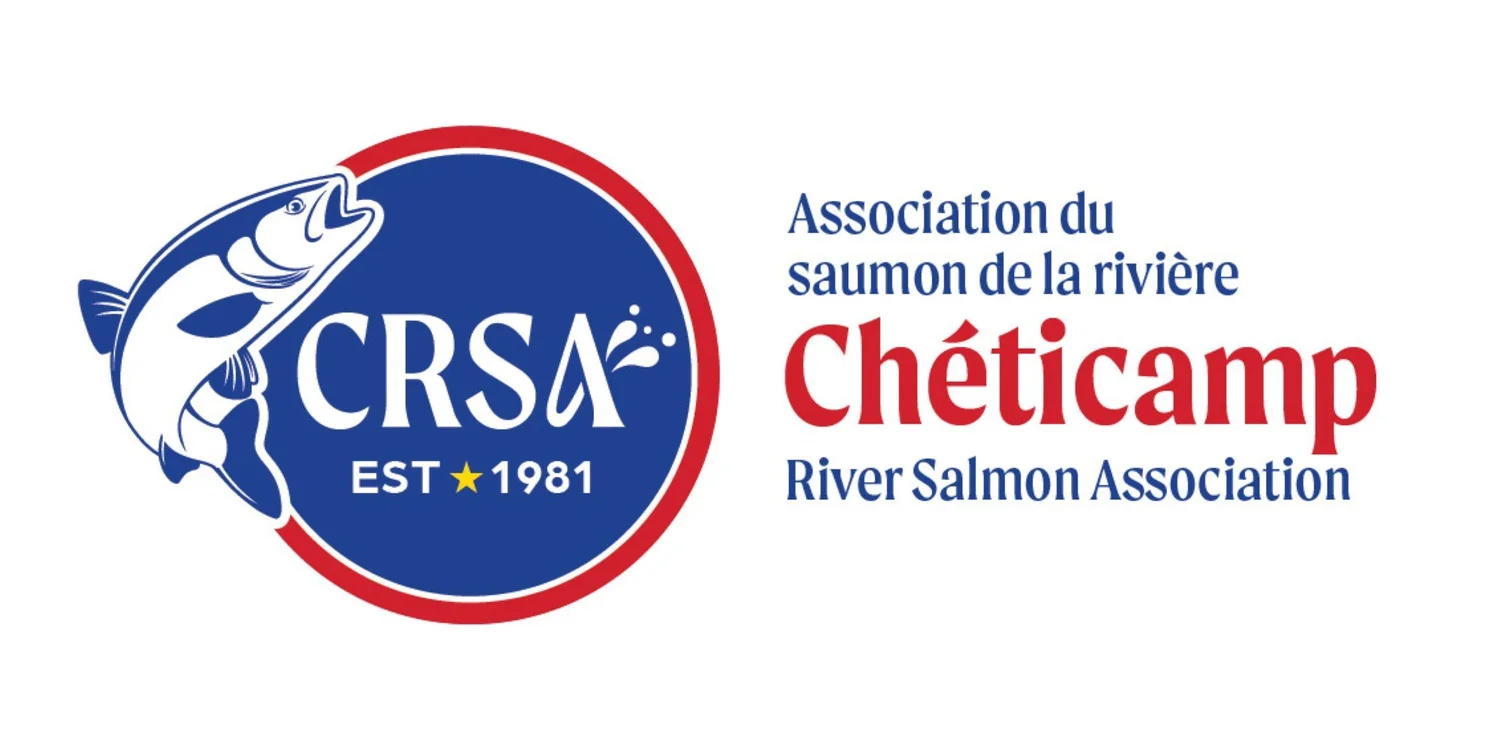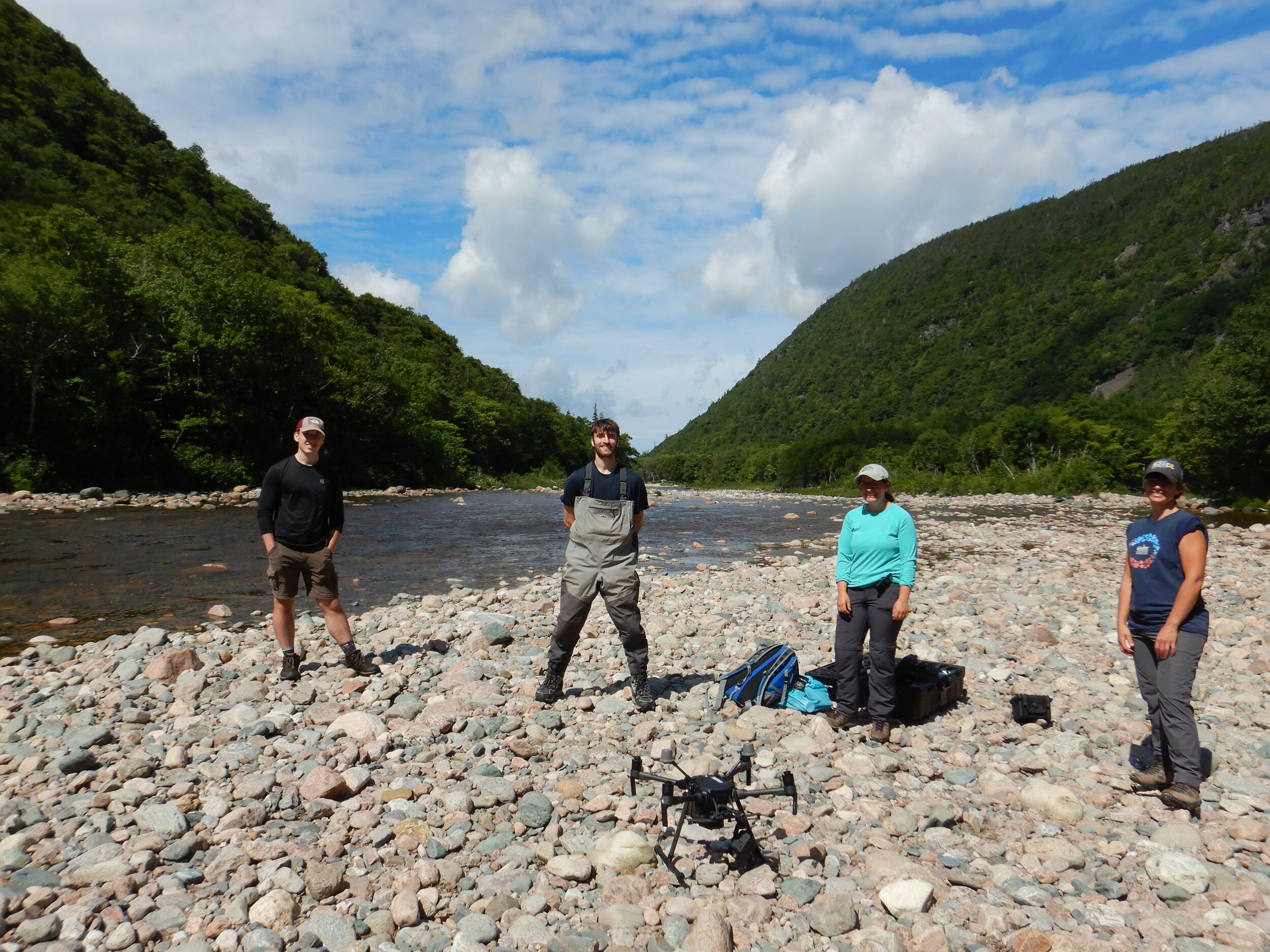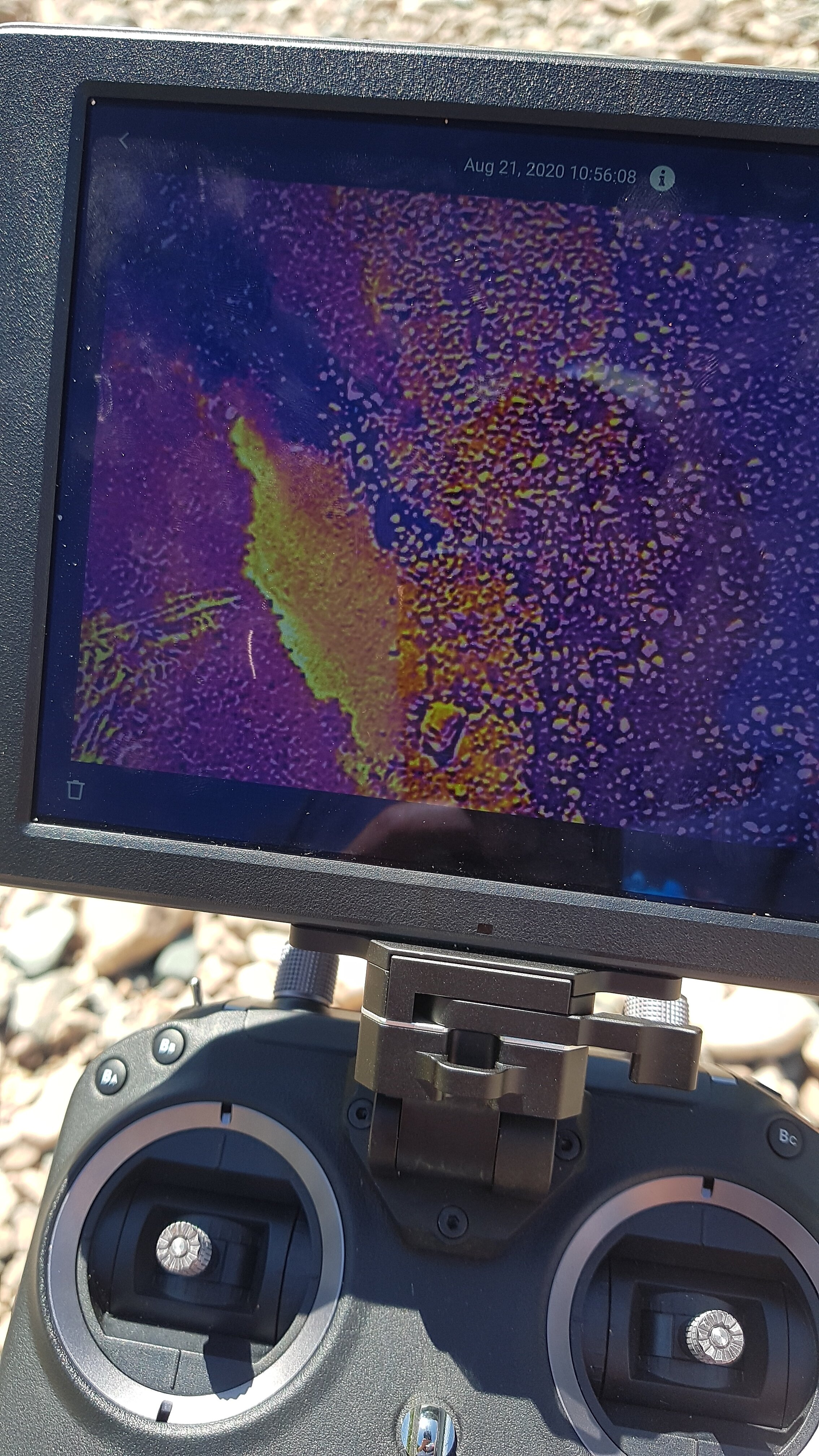Another busy summer of data collection on the Cheticamp River
With the temperatures dropping and leaves turning vibrant fall colours, the hot dry summer of 2020 may be starting to feel like a distant memory. But not for the Cheticamp River Salmon Association (CRSA). Warm water was a real concern this year, and much of the CRSA’s work in 2020 has focused on studying and addressing issues related to warm water on the Cheticamp River.
While the CRSA has been studying summer water temperatures on the Cheticamp since 2017, this summer they welcomed some extra help and expertise to the river. In addition to working with Cape Breton Highlands National Park (CBHNP) to collect water temperature at key locations along the Cheticamp River, the CRSA also partnered this year with researchers from Dalhousie University. And the partnership with Dalhousie has allowed the CRSA and CBHNP to take their water temperature study into an exciting new direction.
A team of three graduate research students from Dalhousie’s Groundwater Lab (part of Dal’s Centre for Water Resource Studies) spent a week this summer flying high over the Cheticamp River, using a drone to collect valuable new water temperature data. By equipping their drone with a thermal imaging camera capable of distinguishing relative temperatures, the researchers were looking to identify sources of cool water inputs (like groundwater seeps and springs).
Team of researchers from Dalhousie University (from left to right - Connor Acton, Jason Karis-Allen, and Kathryn Smith) worked alongside the CRSA and Jillian Baker (far right), CRSA’s Project Manager
Dalhousie researchers (Kathryn Smith and Connor Acton) working with one of CRSA’s summer field technicians (Keats Doucette, centre) to assemble the drone equipped with thermal imaging camera
Drone in the air collecting data above Fence Pool on the Cheticamp River
Locating sources of cool water is becoming increasingly important for anyone involved in the conservation of cold-water species like Atlantic salmon. With climate change projected to exacerbate the trend of increasing summer water temperatures, groups like the CRSA are looking into options for helping to mitigate elevated summer temperatures.
In the case of the CRSA, the plan is to use the results of the thermal mapping work when making recommendations for future habitat enhancement or restoration work on the Cheticamp River. For example, recommendations could include carrying out tree planting along the riverbanks to increase shade or using rock structures to divert flow into focused areas to encourage the development of cool water resting places (thermal refugia).
View of some of the thermal imagery captured by the camera on Dal’s drone
At this stage, the researchers from Dalhousie are back in their labs, working on the start of a thermal map of the lower Cheticamp River. And the CRSA is also transitioning from data collection and fieldwork to office work, including data analysis, report writing, and working with Parks Canada on a conservation plan for the Cheticamp River. Once completed, the conservation plan, including the results of the thermal mapping work and recommendations for thermal management options for the river, will be made publicly available.
In addition to the main partnership with Cape Breton Highlands National Park and Dalhousie University, other organisations that are making important contributions to the project are the Nova Scotia Salmon Association, the Atlantic Water Network, the Atlantic Salmon Federation, and the local office of Department of Fisheries and Oceans. The CRSA’s work is also funded by the Atlantic Salmon Conservation Foundation, the Nova Scotia Salmon Association’s Adopt-a-Stream Program, the Atlantic Canada Opportunities Agency, Sue and Graham Smith, the RBC, and the Tag! You’re It! Program run by Big Spruce Brewery and the Ocean Tracking Network.




